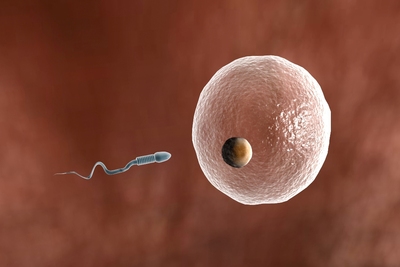Improving IVF by implanting euploid embryos
Tuesday, 15 May, 2012
BlueGnome is pleased to announce the results of the first randomised prospective IVF study of pre-implantation chromosome analysis using its 24sure array platform. The study, published in The Journal of Molecular Cytogenetics by Yang et al (Pacific Reproductive Center, Torrance, USA), has demonstrated that selectively implanting euploid embryos, with a normal number of chromosomes, significantly increases pregnancy rates.

The study blindly randomised 103 IVF cycles. In the treatment group of 55 cycles, 24sure analysis of day five biopsies was used to selectively implant a single euploid embryo (as recommended by IVF regulatory bodies such as the HFEA); while in the control group of 48 cycles, single embryos were selected using existing morphological scorecard approaches. The ongoing pregnancy rate, after 20 weeks, per cycle started was 69.1% in the 24sure treatment group vs 41.7% in the control group.
This extremely promising result provides direct evidence that 24sure analysis can deliver a 65% increase in pregnancy rates, even in younger patients with more favourable IVF outcomes. Further randomised studies are needed and are underway.
“This study provides crucial evidence that 24 chromosome aneuploidy screening, using 24sure, can offer a dramatic benefit to IVF success rates. While further studies are still needed, this result is incredibly exciting because it indicates for the first time that 24 chromosome screening and single embryo transfer has the potential to become the default standard of care for all IVF cycles worldwide,” said Nick Haan, CEO of BlueGnome.
Several key opinion leaders have had positive reactions to the study. Dr Jamie A Grifo, Program Director of NYU Fertility Center, USA, said, “This well-designed study supports what many of us have expected for a long time; aneuploidy is responsible for most IVF failure. Assessment of an embryo’s ability to create a pregnancy is best done not by morphologic examination, rather it is best done by assessing all 24 chromosomes ... Choosing a single high potential embryo will result in fewer multiple pregnancies, fewer miscarriages and will also help us define the population of patients who make few or no euploid embryos.”
Dr Leeanda Wilton, Scientific Director of Preimplantation Genetics, Melbourne IVF, was “not at all surprised” by the results of the study.
“They mirror our success at Melbourne IVF using BlueGnome’s 24sure technology. We’ve provided this service to our patients for just over a year and already about 20 babies have been born and another 50 are on the way. It’s a significant breakthrough for patients who are struggling to become pregnant,” she said.
Others have provided assurance that the small size of the study would not have affected the results. Dr Jacques Cohen, Director of Tyho-Galileo Research Laboratories, Livingston, USA, said, “Although the study was relatively modest in size, the results were blinded to observers and embryos were randomised to avoid bias. It opens up the exciting possibility to perform PGS not just in complicated patients such as those with poor ovarian reserve, but also egg donors and young women as abnormal embryos are common at any age.”
Professor Mark Hughes, Genesis Genetics Institute, Detroit, USA, added, “While this is a small pilot study, it underscores clearly that even younger infertile couples undergoing IVF will benefit significantly by this powerful technology advance. Since nearly half of a patient’s embryos are chromosomally abnormal, the ability to reliably detect the normal ones for uterine transfer will impressively improve the chances that these rather desperate couples can finally have a healthy family - and one baby at a time, which is the ultimate goal for all involved.”
For more on 24sure and its prevention of aneuploidy, visit http://www.youtube.com/watch?v=U38IjDFHQd8.
Proteomic approach identifies new blood-clotting disorder
Analysis of lethal antibodies has helped Australian and international researchers identify a new...
Blood test for chronic fatigue syndrome developed
The test addresses the need for a quick and reliable diagnostic for a complex,...
Droplet microfluidics for single-cell analysis
Discover how droplet microfluidics is revolutionising single-cell analysis and selection in...



